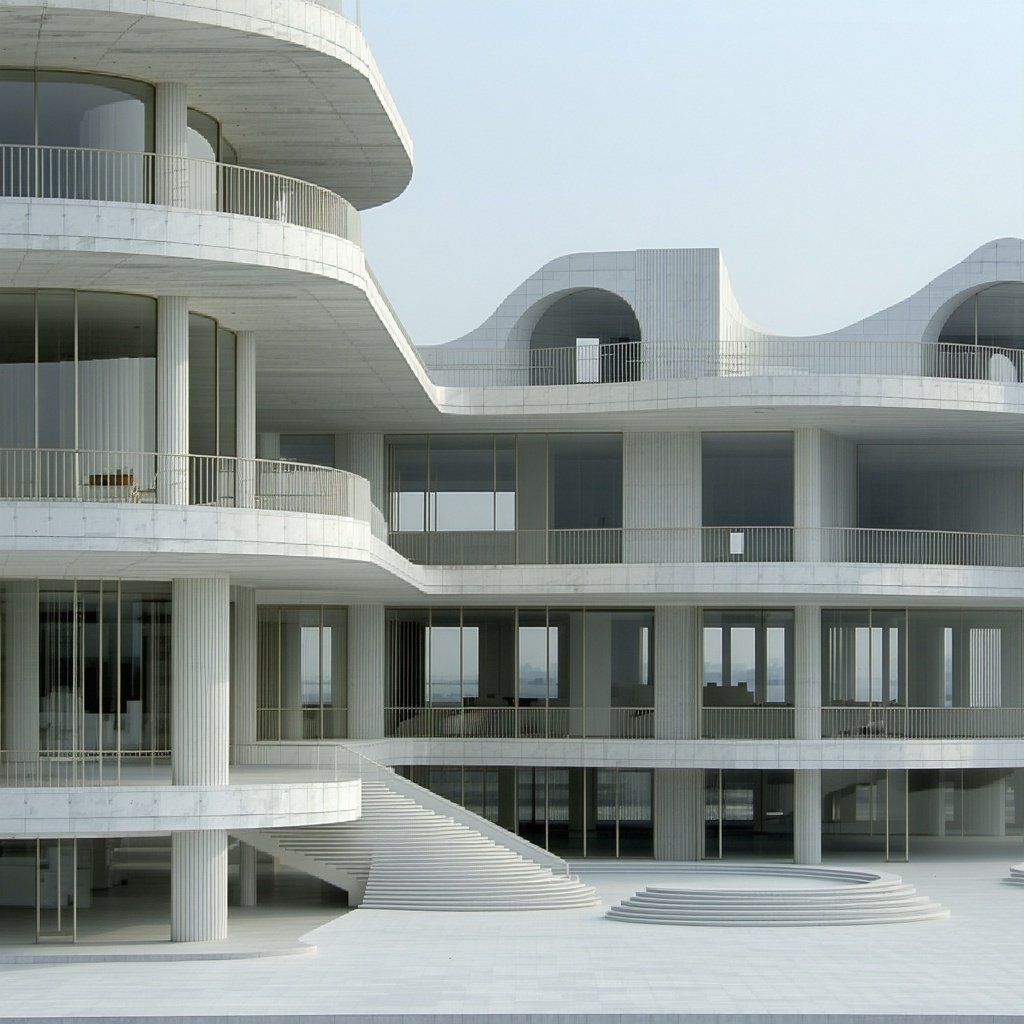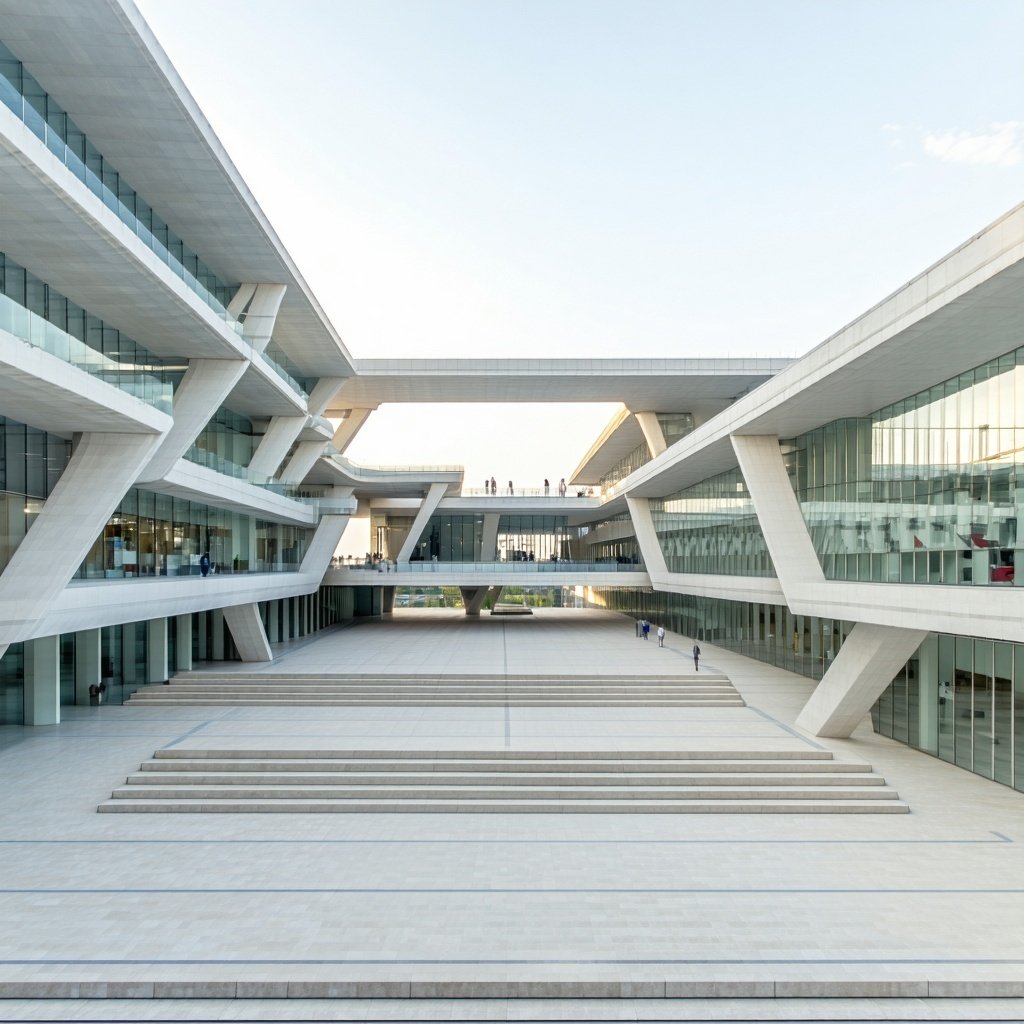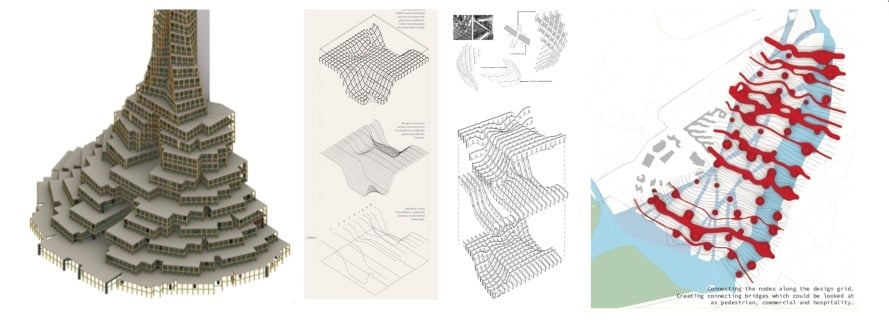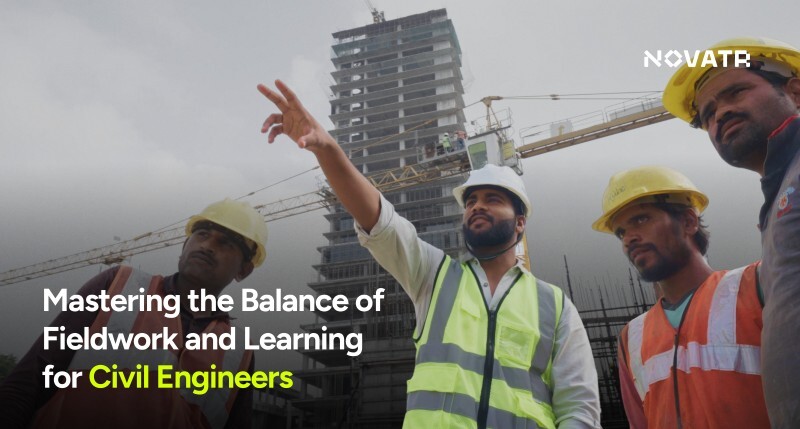
You’ve completed your Bachelor's in Architecture (B.Arch) and are unsure about what your next steps should be. We understand that the traditional path might influence you to pursue a Master’s in architecture (M.Arch), but the question is: Is it necessary? Will it be worth the time and money?
This brings us to one of the most important factors that should determine your decision to study a Master’s of Architecture, the return on investment.
Cost of Pursuing an M.Arch in India
The choice of where to study your M.Arch is a crucial decision, with several key considerations, including cost, quality of education, and future career aspirations. Government colleges are more affordable and may have highly regarded institutions but may not be able to compete on specialised program offerings or facilities with private institutions. To make your decision easier, we’ve done your homework for you.
The cost of Master of Architecture (M.Arch) colleges in India primarily varies based on the institution type and location.
- Government Institutions: These offer M.Arch programs that are relatively affordable. For instance, IIT Roorkee’s fee is approximately ₹61,000 for its M.Arch program. Other government institutions like SPA Delhi and NIT Trichy have fees ranging from ₹1.08 lakh to ₹1.4 lakh. (source)
- Private Institutions: Private colleges tend to have higher fees. For example, CEPT University charges around ₹8.38 lakh, while Chandigarh University has a fee of approximately ₹2.36 lakh.
It's essential to weigh the tuition fee to the potential earnings you can make. So, let’s get into that.
Earning Potential Post M.Arch
After completing your M.Arch, your most probable next step is to secure a job. Your earning potential post-M.Arch will depend on factors such as location, area of specialisation and experience.
The industry standard is as follows:
|
Job |
Experience |
Salary |
|
Architectural Intern |
Entry Level |
₹3,00,000 - ₹4,50,000 |
|
Junior Architect |
Entry Level |
₹4,00,000 - ₹6,00,000 |
|
Project Architect |
Mid Level |
₹6,00,000 - ₹10,00,000 |
|
Senior Architect |
Mid Level |
₹8,00,000 - ₹15,00,000 |
|
Design Director |
Senior Level |
₹15,00,000 - ₹25,00,000 |
|
Principal Architect |
Senior Level |
₹20,00,000 - ₹40,00,000 + |
Moreover, it’s important to remember that specialisations such as urban planning, sustainable architecture, or international project management can increase earnings potential as well. Additionally, if you’re experienced in design software or other certifications (e.g., LEED educational credentials), you automatically become more marketable and likely to earn more.
Timeframe to Achieve ROI
You're probably asking yourself the big question: "Will spending two years and a significant amount of money on a Master of Architecture pay off?" It's a fair concern, and honestly, one that every prospective architecture student should be thinking about seriously.
Landing Your First Job
Good news: you likely won’t be job hunting for months. In metropolitan cities like Delhi, Mumbai, and Bengaluru, most M.Arch graduates secure employment within 1–3 months, thanks to strong industry demand. In smaller towns, it might take a bit longer but opportunities do exist.
The Reality of ROI of Master’s in Architecture
Here's the truth: expect 5-7 years to recoup your investment fully. That might sound long, but you're not just sitting around; you're building experience and watching your salary grow year by year.
While 5-7 years seems lengthy, you're not just breaking even, you're building a foundation for decades of career growth. Choose your specialisation wisely, consider location strategically, invest in relationships, and never stop learning. With the right approach, you could beat that timeline significantly.
Market Demand and Employment Opportunities
The numbers look promising for architects as far as market demand and employment opportunities go. Let’s get into it.
Market Growth & Scale
- India's construction sector is set to reach $1.4 trillion by 2026 and become the world's third-largest construction market
- Firms are expected to add 1.1 million engineering jobs by 2030
- Places architects at the centre of a massive transformation of how India builds its infrastructure and cities
Key Growth Drivers
- Government infrastructure initiatives, smart city projects, and rapid urbanisation are driving this growth
- 50% of India will be living in cities 2046, and the demand for residential and mixed-use developments is enormous
- Significant skills shortage in modern design tools, sustainable practices, and innovative building technologies
Geographic Opportunities
- Metro cities like Delhi, Mumbai, and Bengaluru offer the highest starting salaries (₹4–8 lakh per annum, ₹20+ lakh for specialists) and a diverse range of projects
- Tier-2 cities such as Ahmedabad, Kochi, and Indore present solid opportunities with less competition and lower living costs
High-Demand Specialisations
- Sustainable design
- Smart city planning
- Heritage conservation
- Industrial facilities
M.Arch Graduate Advantages
- Specialised expertise
- Research and innovation skills are valued for complex projects
- Technology proficiency in BIM and VR/AR tools
- Global perspective is attractive to international firms
Employment Sectors
- Private development
- Government projects
- International firms expanding in India
- Entrepreneurial opportunities in independent practice
Long-term Outlook
- The construction industry is projected to grow at over 6% annually for the next five years
- Not a short-term boom — it's a sustained transformation
- M.Arch degree positions you perfectly to capitalise on opportunities ranging from traditional practice to cutting-edge sustainable design and smart city planning in a market experiencing both massive growth and skills shortage
Alternative Educational Paths
Given the strong market demand we've just explored, the reality is that your M.Arch degree, while valuable, might not equip you with every skill that top architecture firms are currently seeking.
Industry Evolution Challenge
- The industry's rapid evolution means the tools and technologies you learned in school may already be outdated by the time you graduate
- This skills gap isn't a flaw in your education; it's simply the nature of a fast-moving industry where new software, design methodologies, and building technologies emerge constantly
Market Reality
- The firms offering those ₹20+ lakh salaries we mentioned are specifically seeking professionals who stay current with the latest industry tools and practices
Solution: Targeted Upskilling
- Targeted upskilling becomes crucial for maximising your M.Arch ROI
- Platforms like Novatr recognise this challenge and offer specialised programs designed to bridge the gap between academic learning and industry requirements
- Their BIM Professional Course for Architects is particularly relevant, as Building Information Modelling has become essential for most major architectural projects, yet many traditional M.Arch programs don't provide comprehensive BIM training
Conclusion
So there you have it; the complete roadmap to making your M.Arch investment work for you. We've broken down the realistic timelines, explored the incredible opportunities in India's construction boom, and shown you exactly how to position yourself for success.
The truth is, your 5-7-year ROI journey doesn't have to be passive. Smart graduates are already shortening this timeline by staying current with industry demands. While your peers are learning on the job, you could be entering the workforce with exactly what top firms need.
That's where strategic upskilling makes all the difference. Novatr's BIM Professional Course for Architects isn't just another course – it's your route to those premium positions we've been talking about. Plus, their Resource Page keeps you plugged into industry shifts before they become mainstream.
Your M.Arch degree gets you in the game, but the right skills get you winning.
FAQs
1. What is the average cost of pursuing an M.Arch in India?
The average cost of pursuing an M.Arch in India is up to ₹5,00,000.
2. What is the average starting salary for M.Arch graduates in India?
The average starting salary for M.Arch graduates in India typically ranges from ₹2 - ₹4 Lakhs per semester.
3. How long does it typically take to recoup the investment made in an M.Arch degree?
It takes 5-7 years typically take to recoup the investment made in an M.Arch degree.
4. Are there specialisations within M.Arch that offer better ROI?
Yes, certain M.Arch specialisations offer a potentially better return on investment (ROI). However, also feel free to explore online courses since you can learn the same specifications at half the cost of an M.Arch.
5. How does the ROI of an M.Arch compare to alternative educational paths like certification programs?
An M,.Arch program provides good ROI, however, you can shorten this timeline by staying current with industry demands and enrolling in an online course like BIM Professional Course for Architects by Novatr.
Was this content helpful to you













